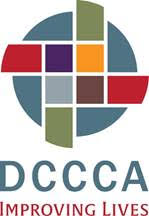TOPEKA – In 2016, there were more than 300 drug-poisoning deaths in Kansas, and approximately half of those involved a prescription or an illicit opioid. Although Kansas is below the national average for fatal opioid overdoses, the opioid crisis is an emerging threat that remains a priority for the state to address. The Kansas Prescription Drug and Opioid Advisory Committee has developed a four-year plan to provide help to those affected and empower professionals with the strategies they need to reduce prescription drug and opioid misuse, abuse and associated adverse health outcomes.
“Kansas has an opportunity to address the opioid crisis proactively through federal programs and collaborative strategic planning with stakeholders. We convened the Kansas Prescription Drug and Opioid Advisory Committee to carry out this critical project,” said Dr. Greg Lakin, medical director at the Kansas Department of Health and Environment (KDHE).
The role of the Kansas Prescription Drug and Opioid Advisory Committee is to develop and implement a coordinated, multi-disciplinary statewide strategic plan to provide a comprehensive approach to the opioid crisis in Kansas. The Kansas Prescription Drug and Opioid Advisory Committee is facilitated by DCCCA, Inc., with joint support from KDHE and the Kansas Department for Aging and Disability Services (KDADS). This blue-ribbon panel is comprised of more than 80 professionals from 42 organizations across the state. These partnerships include representatives from community organizations, professional associations, State agencies, educational organizations and health systems.
The Kansas Prescription Drug and Opioid Advisory Committee recently published the Kansas Prescription Drug and Opioid Misuse and Overdose Strategic Plan 2018-2022, with the overarching goal of identifying and implementing prevention and intervention efforts around prescription drug and illicit opioid abuse, thereby decreasing fatal and non-fatal overdose rates in Kansas.
“Publishing the Kansas Prescription Drug and Opioid Misuse and Overdose Strategic Plan is an important step in developing a sustainable, systematic approach to addressing the opioid crisis in Kansas,” said KDADS Secretary Tim Keck. “The strategic plan will guide stakeholders at both the state and local level with the implementation of prevention and response strategies for prescription drug and opioid misuse and overdose.”
This strategic plan was developed around five priority areas: Prevention, Provider Education, Treatment and Recovery, Law Enforcement, and Neonatal Abstinence Syndrome (NAS). The goals, objectives, and strategies in the plan are driven by Kansas-specific data, support best practices, and aim to address multiple levels of impact. This document is located on the KDHE Prescription Drug Overdose/Misuse Prevention webpage: https://www.preventoverdoseks.org.
The document may be downloaded in full or in part from the website, which also includes information regarding the Kansas Prescription Drug and Opioid Advisory Committee as well as Kansas-specific epidemiological data. A limited quantity of hard copies will be available by request by emailing [email protected] or by calling 785-296-5795.
This project is supported by the Centers for Disease Control and Prevention’s (CDC) Prescription Drug Overdose: Data-Driven Prevention Initiative and the Substance Abuse and Mental Health Services Administration’s (SAMHSA) Partnerships for Success program.
Dr. Lakin serves on the Kansas Prescription Drug and Opioid Advisory Committee. He also serves as Chair on the Governor’s Substance Use Disorder Task Force, which is in the process of developing recommendations to the Governor to further address this issue. The Kansas Prescription Drug and Opioid Misuse and Overdose Strategic Plan 2018-2022 will serve as a resource for the task force as the members compile their recommendations, due to the Governor by Sept. 1.

